Day 4 – October 26, 2023
AT A GLANCE: What sessions took place today?
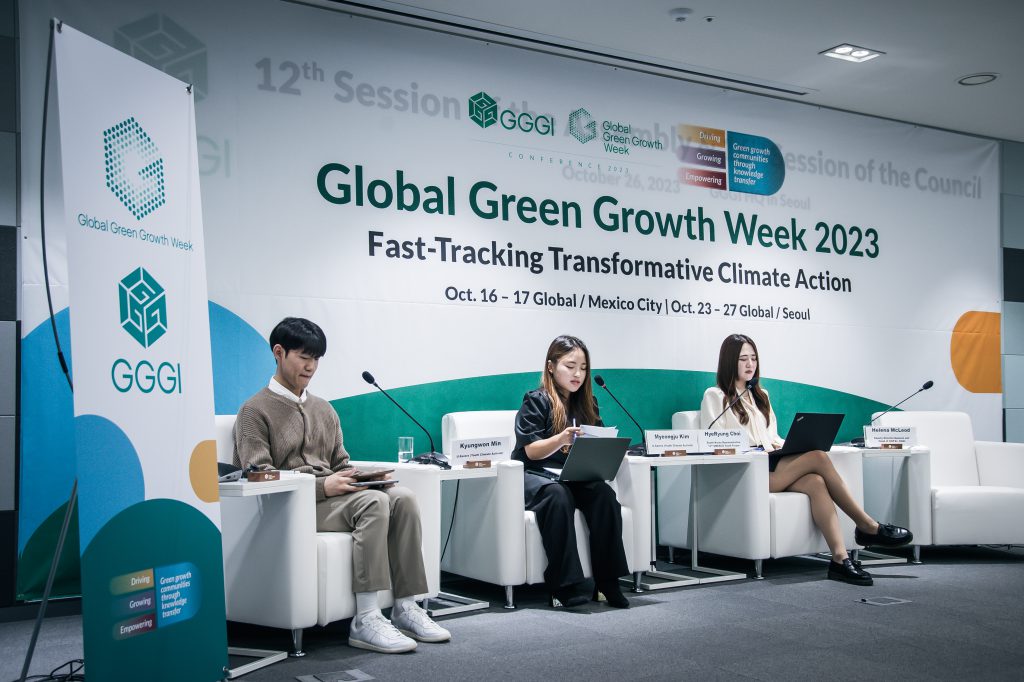
Bridging the green skills gap through technical education and green technologies in South Asia, Innovative solutions for Green Hydrogen value chain – Powering sustainable Net-Zero transition, Inclusive Lanes: Bridging Transport Decarbonization and Social Equity, Business Models to Unlock Climate Finance and Private Capital for Green Growth, Youth for Climate Action, Ministerial Level Panel on the Green Transformation of GGGI Member States and Partners: The Road to COP28, Core replenishment meeting, Climate Change, Migration, Green Jobs, Security, and Peace: Practical Solutions and Approaches from the Field, Assembly & Council Sessions
Day 4 of Global Green Growth Week 2023 held a total of six knowledge-sharing sessions focused on green economic opportunities and best practices for transitioning to a sustainable economy. Notably, the youth forum and high-level discussion including GGGI Member and Partner State ministerial panel session were held successfully.
Green technologies and Business models for green growth were central to Global Green Growth Week 2023, with insights from Green Economic Opportunities in South Asia. The first session of Day 4 emphasized the significance of bridging the green skills gap through technical education and technology to prepare the future workforce for promoting environmental sustainability and economic growth.
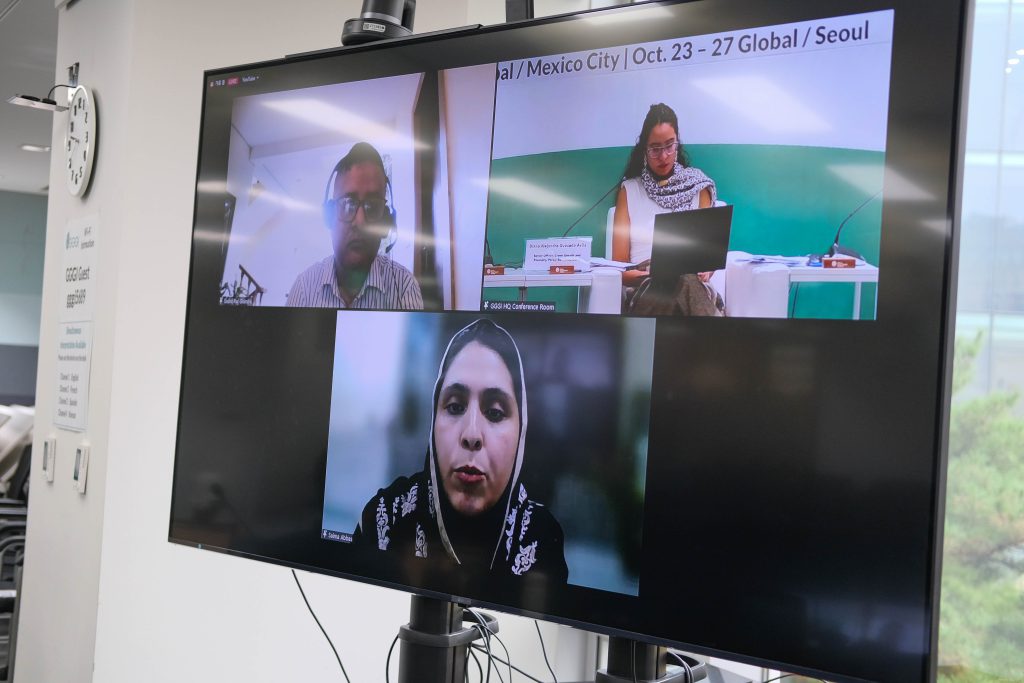
“According to the Asia Business Council, it is predicted that the number of green jobs created by 2030 could reach 100 million worldwide, accounting for approximately 2 percent of the future workforce. It is estimated that Asia alone could have 50 million green jobs, and many positions in existing industries may require green skills.” Ms. Saima Abbas, Education Officer, National Curriculum Council in Islamabad said.
In the session on ‘Business Models to Unlock Climate Finance and Private Capital for Green Growth’, the emphasis was placed on the significance of strengthening domestic and regional financial institutions for climate finance in GGGI member countries. Insights were shared on green lending models, attracting private sector capital for climate action, and establishing a public sector climate finance unit, drawing lessons from ADB’s Southeast Asia Facility for resilient cities.
For Efficient and Sustainable Resource Use, global experts delved into the policy, technology, and financing aspects of the Green Hydrogen value chain along with innovative mechanisms to bridge the cost gap between Green and Grey Hydrogen. Additionally, sustainable, inclusive, and innovative electrification strategies for mitigating greenhouse gas emissions and enhancing resilience in transportation were discussed for Natural capital protection, with a focus on electric vehicles (EVs).
“We found that domestic female workers inhale, on average, 67% more PM (particulate matter) than men and 57% more than any other women. Why is it? Because of their longer commutes. Also, because many of the vehicles that they use for transport are highly poluting. We have to start planning for the worst-off commuter.” Valentina Montoya Robledo, Director, Invisible Commutes said.
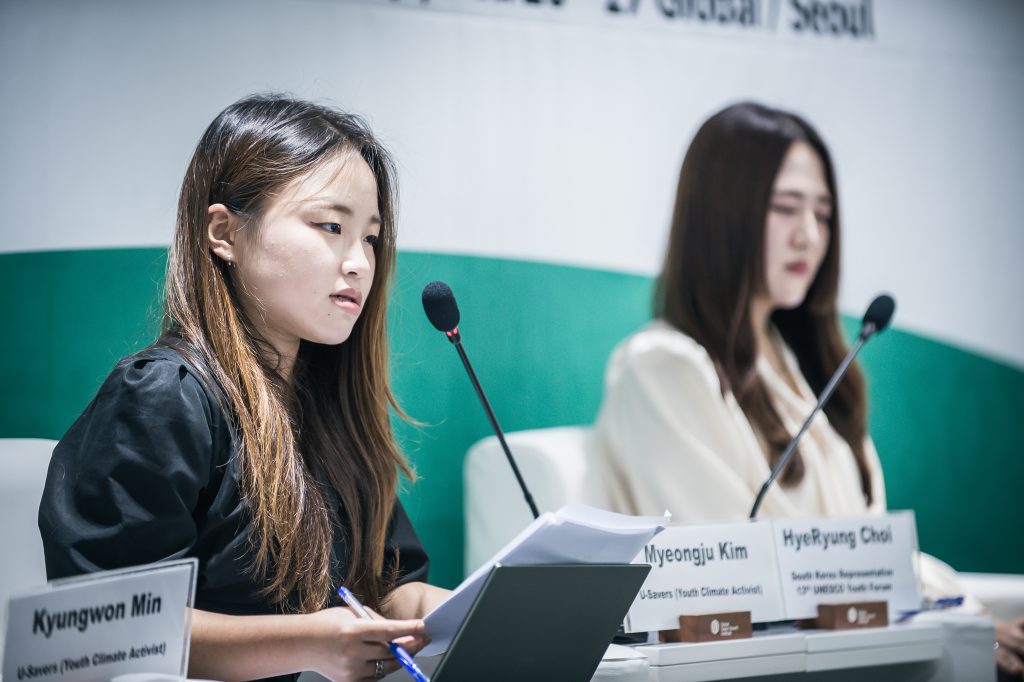
Of particular interest were the two sessions on Social Inclusion with a specific focus on youth and climate action. With the aim of ensuring sustainable transitions to greener economies and mitigating unexpected challenges for already disadvantaged groups, the youth forum explored the intersection of skills, education, youth, and climate action. This session highlighted skills and education necessary for climate resilience, fostering active engagement of young people as entrepreneurs, employees, and leaders in the evolving climate discourse.
Discussions between panelists and attendees have added substantial depth to this session.
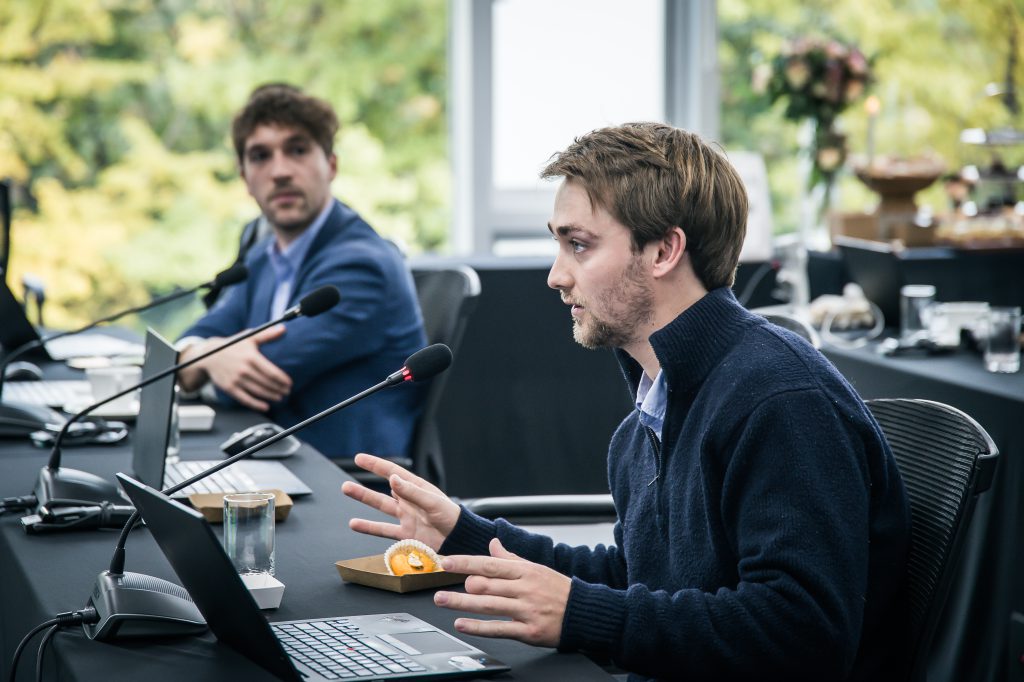
“Our goals and objectives that we’re targeting have been put in place by the older generation when we look at the SDGs. They are deciding what is successful. But as our climate youth leaders and the people who are going to inherit this planet when they are gone, what does climate success look like to you? Should we be more ambitious than we are now, or are we being too ambitious?” One of the on-site youth participants asked.
“First of all, recognizing that this [climate crisis] is a global justice issue. It’s hugely unfair that the least developed countries and small island development states are the most impacted, and they are the least to blame. Furthermore, young people in those countries are not with us here mostly. So, we need to embed mechanisms in the work that we do in our member countries to ensure that young people are at the forefront of climate change.” Ingvild Solvang, Head of Climate Action and Inclusive Development, GGGI pointed out.
Following this session, comprehensive, integrated approaches were discussed to address interrelated phenomena derived from a mixture of a climate crisis. The session examined experiences in diverse African and Middle Eastern regions, where GGGI, IOM and IDE are implementing practical solutions to enhance resilience, create green jobs, improve living conditions for refugees, migrants, and host communities in the face of complex challenges. These engaging discussions demonstrated the importance of collaborative, inclusive efforts in addressing the multifaceted challenges posed by the climate crisis.
In addition to the youth forum, Day 4 also explored expanding triangular cooperation on green transformation through the core replenishment meeting, and ministerial panel sessions. The current state of green transformation, future priorities, and COP28 took the spotlight in this discussion. This discussion paved the way for accelerated climate action of Member States and Partner countries through collaboration.
“I hope COP28 will highlight that the solution needs to be a people-centered, just transition development and not leave any groups behind, including women, youth, and other vulnerable groups, by emphasizing people’s livelihoods and welfare.” President and Chair Ban Ki-moon said.
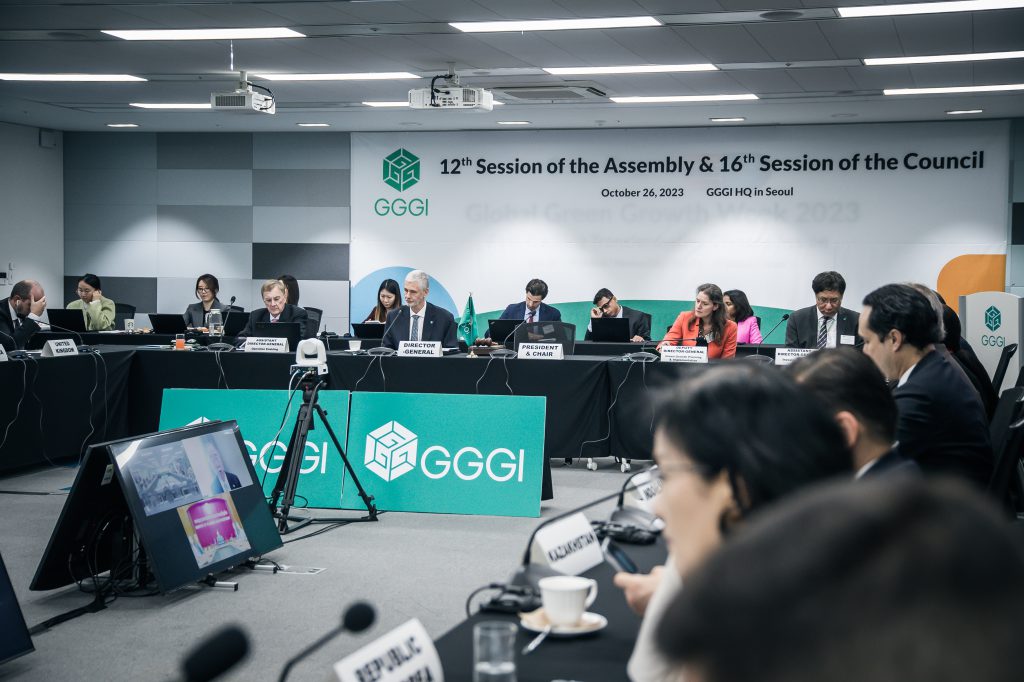
The final session of Day 4 was marked by Assembly & Council meeting. Among the seven agenda items, notable points of this session included the addendum on the roadmap 2021 – 2025 and the election of members to governance organs. The session focused on key updates regarding strategic outcome targets and programmatic solutions to enhance “the Quality of Delivery”.
“Previously, a lot of focus was on resource mobilization. Now we are prioritizing the quality of delivery in each area. Quality of delivery is our number one focus.” Frank Rijsberman, Director-General, GGGI mentioned.
